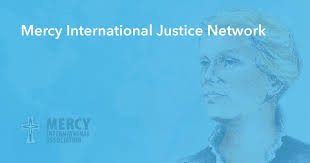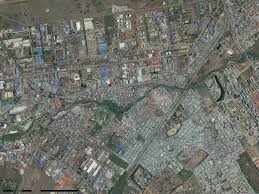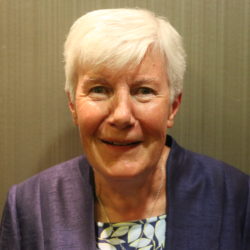In September 1989 I accepted an invitation to support the Killaloe Mercy Mission in Kenya for a period of two years as a Science Teacher. I was happy to spread my wings, as teaching in Ireland had lost some of its glamour for me. I felt confident that my many years of teaching and administration in the Irish Education system were ample preparation for the task ahead. However I had entered a totally new learning curve.
Adjusting to the students lack of familiarity with English as a spoken language, lack of suitable textbooks and a school day which began at 7 am and finished after 5 pm each day demanded wise husbanding energy in the prevailing high temperatures. Then there was the chronic scarcity of water for students and staff except for the seasonal rains which became more and more unpredictable as climate change took hold in African countries. Ensuring a supply of basic food for boarders always caused anxiety among staff and students.

To balance the hardship there was a hunger for education among students which reaped rewards and a future for those who were lucky to complete the course for second level education. Many of my first students in Nuu (my first assignment) kept in touch with me as I moved to other areas in Kenya after six years. They had managed to put their education to good use as they became proud parents, determined to educate their own children.
Community in its broadest meaning became very central to my thinking and way of living. Missionary men and women in Kenya had their own networks even before the advent of the mobile phone. The world seemed more immediate in terms of UNESCO, UN, World Food Programmes, World Council of Churches and other global organisations. These were visibly functional on the ground, especially where hunger, disease, uncertainty and hopelessness prevailed in many instances. AIDS left many child-headed families, especially when their mothers, the most vulnerable in society succumbed to the virus.
This same lack of mobile phones added to our immense trauma just less than six months after Mary Byrne, Eileen Cahill and I had arrived in Kenya. I refer to a horrific road accident where Mary lost her life as she was travelling home to Nguutani with Christina, looking forward to starting up her brand new commercial college. Lack of mobile communication caused two days delay in finding the grim truth eventually so we were shattered and numb when we found the truth. The solemn mass and blessing at the opening of the Nguutani mission was replaced by a sombre celebration of Mary’s life before we said goodbye to her spirit on her way back to Kilrush. During those dark days we were surrounded and supported by missionary men and women who couldn’t have done more for us. Mercy Commercial College continues as a testimony of Mary’s commitment to the education of girls to third level in Nguutani.

Six years later I moved from classroom education to Makadara in Nairobi and was given the challenge to deal with some serious injustices that were feeding into the poverty and hopelessness of youth and especially of women. As the contact for Mercy International Justice Network (MIJN) for the African continent I had the privilege of visiting our Sisters in South Africa, Nigeria, Zambia and Tanzania listening to local problems and supporting the work of Mercy and Justice as far as possible. This was also a valuable network among our Mercy Sisters in Africa. Poverty and corruption were our greatest obstacles in all countries, though in varying degrees. Through this ministry I was privileged to present some input on our Mercy ministry in Kenya at the UN Headquarters through the good work of Deirdre Mullan. We were focusing on AIDS pandemic, unjust debts imposed on ex-colonial countries by World Bank and unjustly imposed poverty through corruption. The UN Development Goals seemed like unrealistic achievements. Hence readjusting to life on my return in 2015 took some time, especially around the use of water.
 Aerial photo of Mukuru
Aerial photo of Mukuru
My last five years in Kenya brought me to Mukuru and to the education scene. Mukuru is a large, undeveloped informal settlement, impoverished and highly populated. None of the young people had skilled jobs and many of them had not completed primary education. When I opened a secondary school in the slum I was inundated with requests for places, even from young men and women who had spent up to ten years after completing primary school with nothing specific to occupy their time or talents. This was a mix of Christians, Muslims, traditionalist religionists and impromptu small free-thinking groups who came together to sing and pray together at regular intervals. I grew to appreciate the diversity of ways in which it is possible to express one’s yearning for God. Singing was an essential part of all forms of worship no matter the appellation!
I hold precious in my memories the wonderful resourcefulness of so many people who appeared to have so little by way of worldly goods. I was accepted by different tribes and peoples as one of their own. I have happy memories and enormous respect for the values of community, caring, acceptance and friendship. I learnt many lessons about what is enough, and when is enough. I believe in the future of countries whose people are so committed to looking out for each other and whose culture has much to teach our ‘developed countries’.
Angela Hartigan
South Central Province


